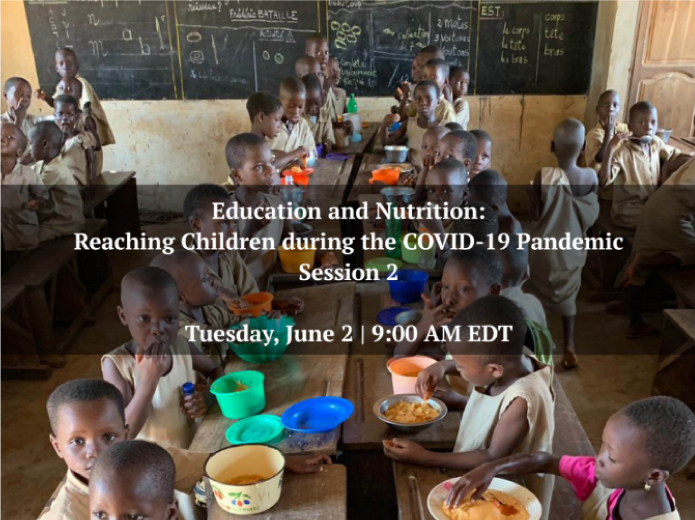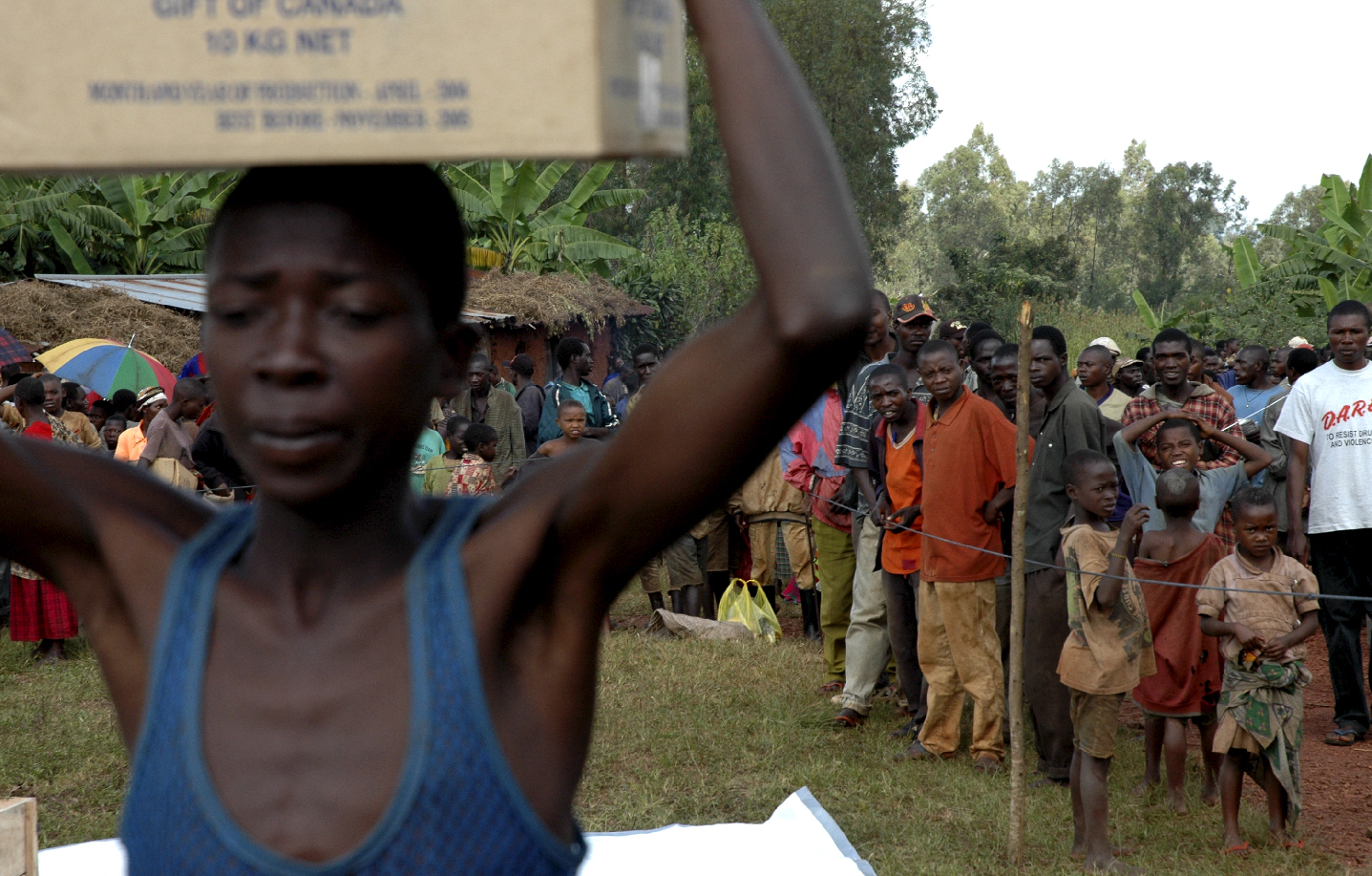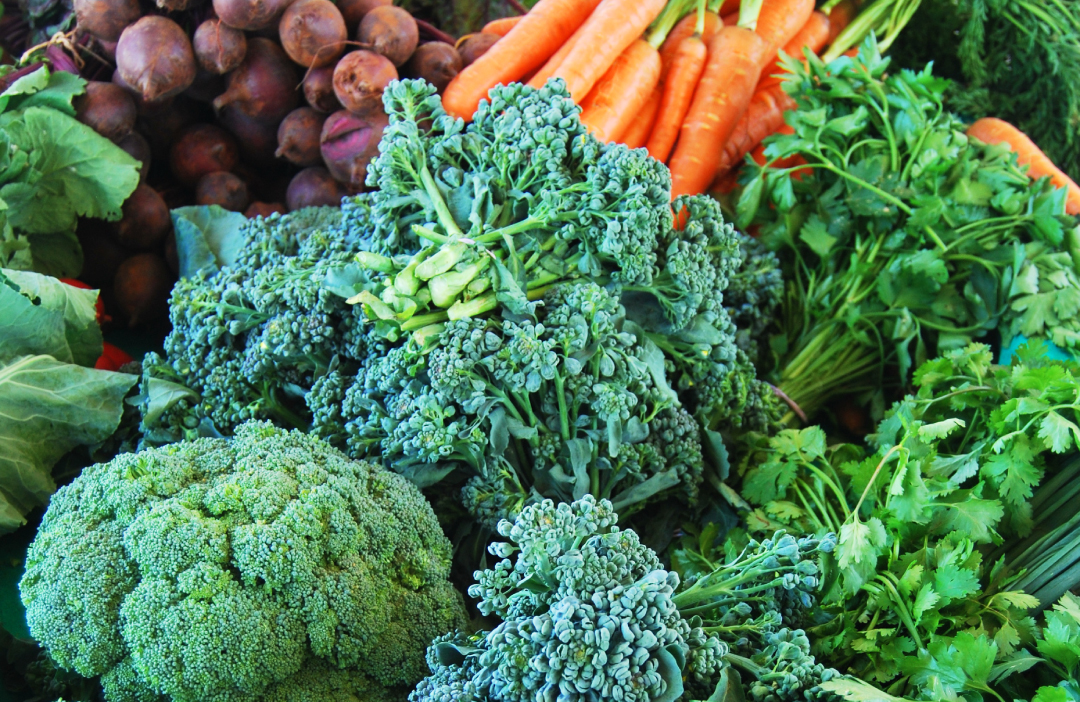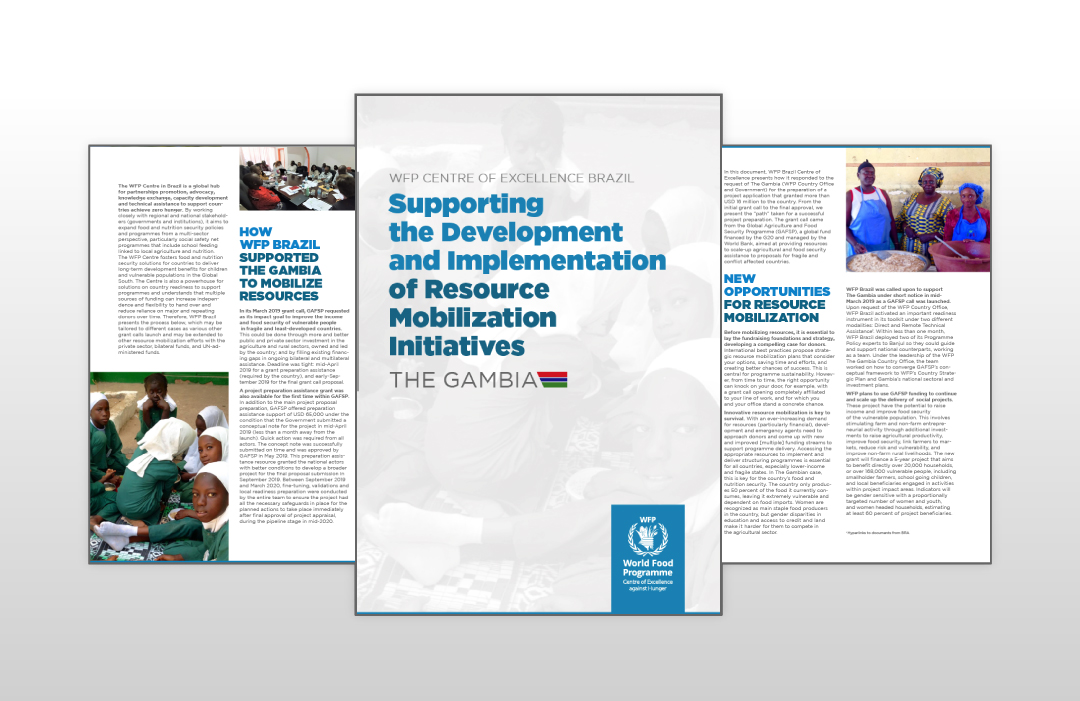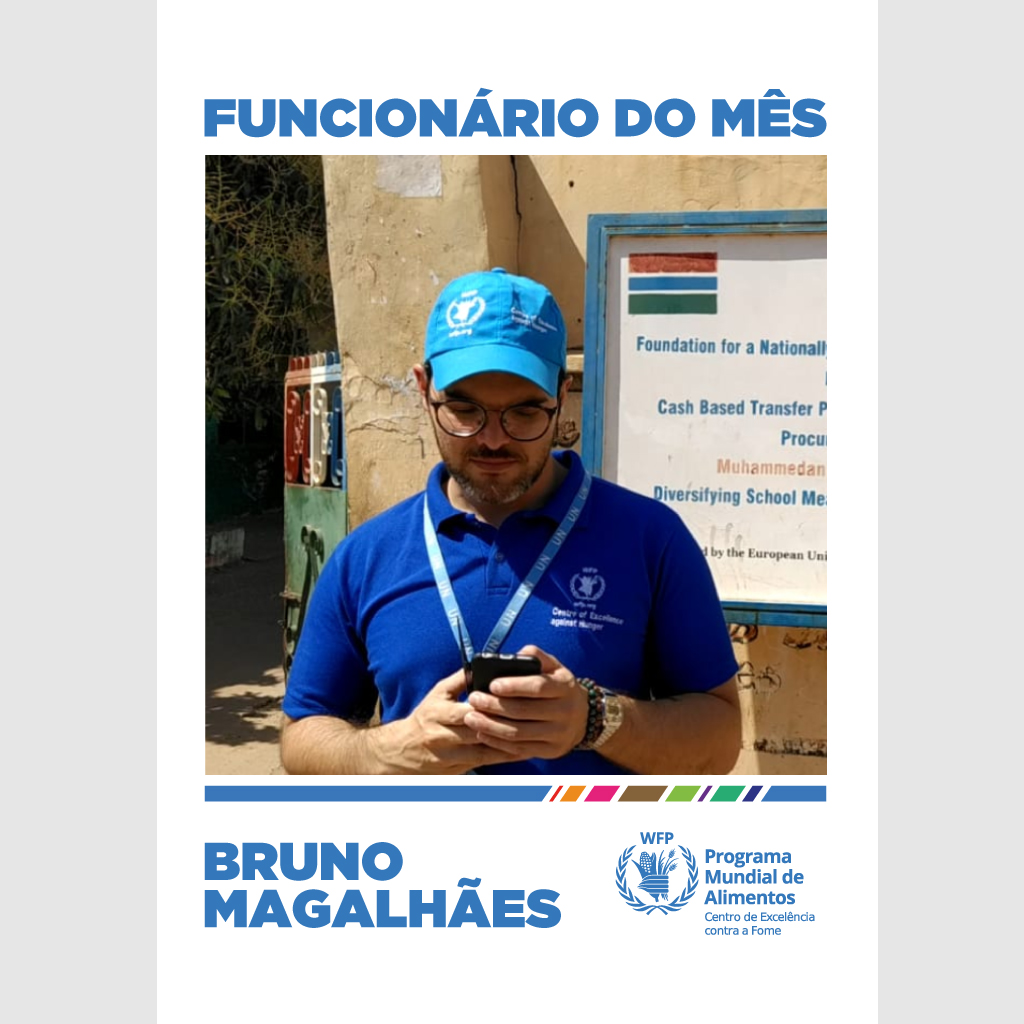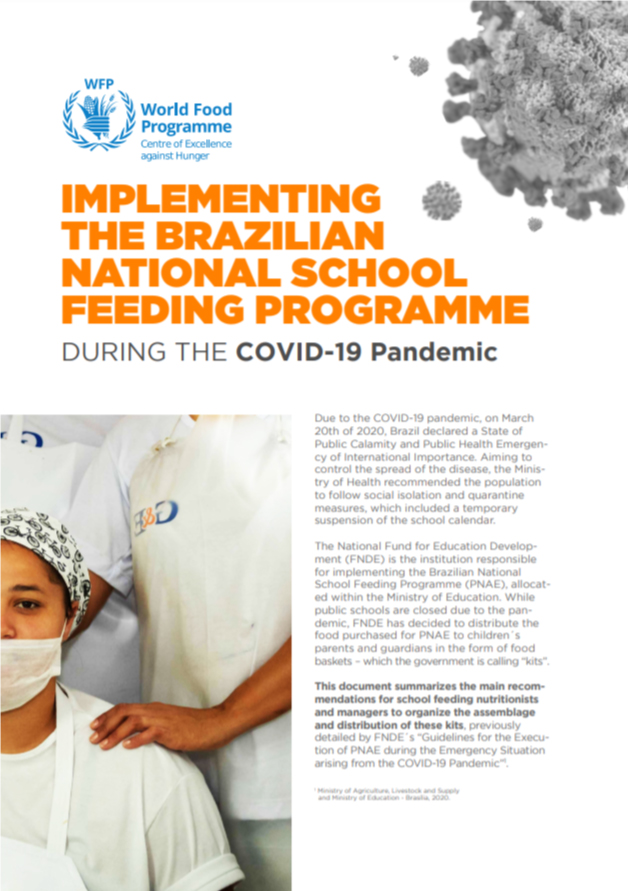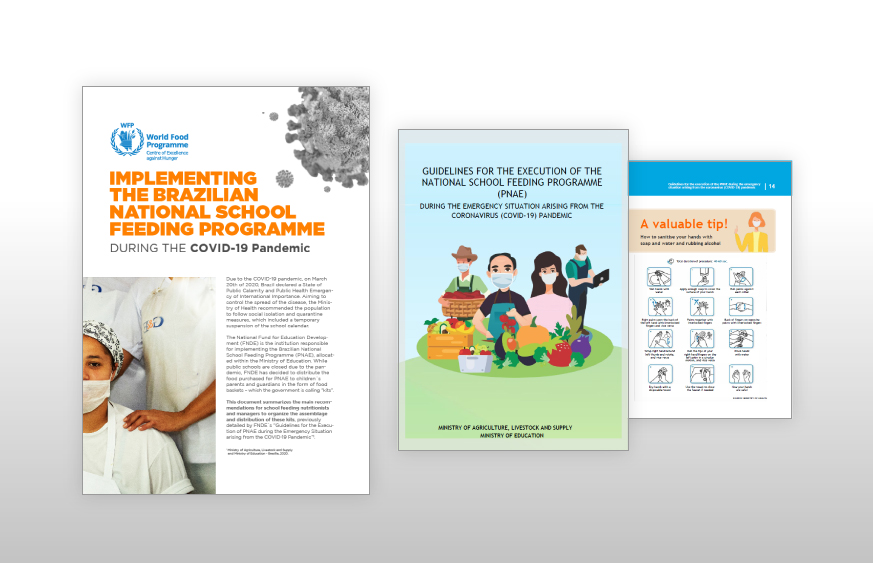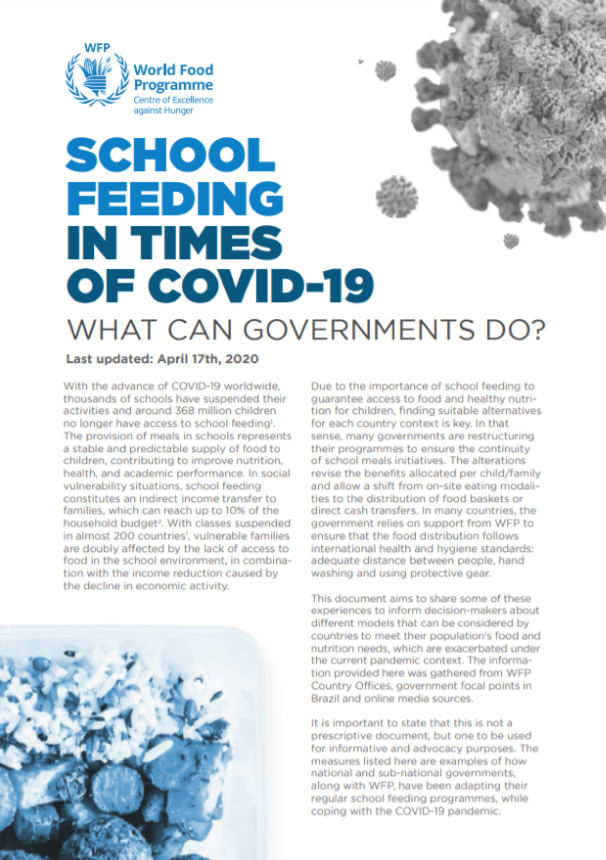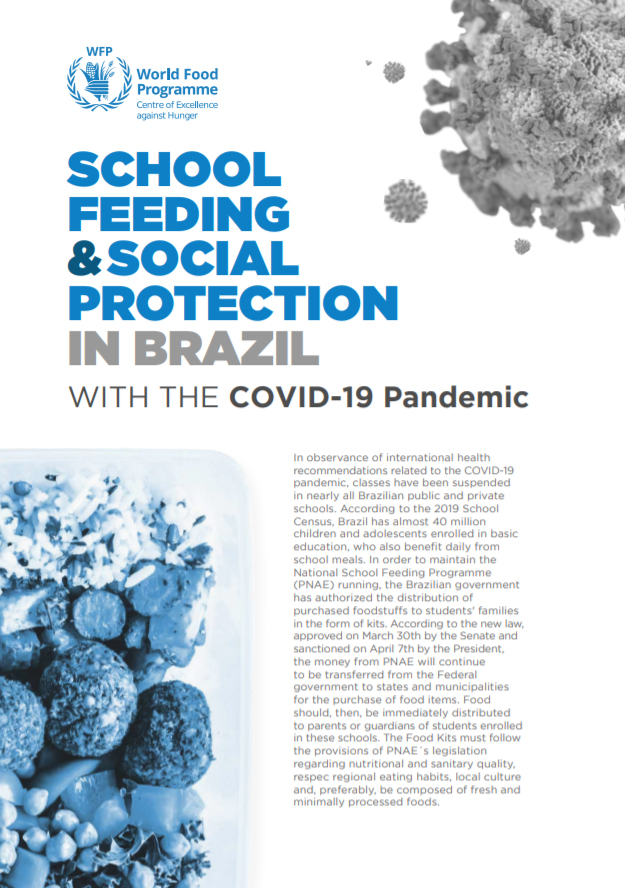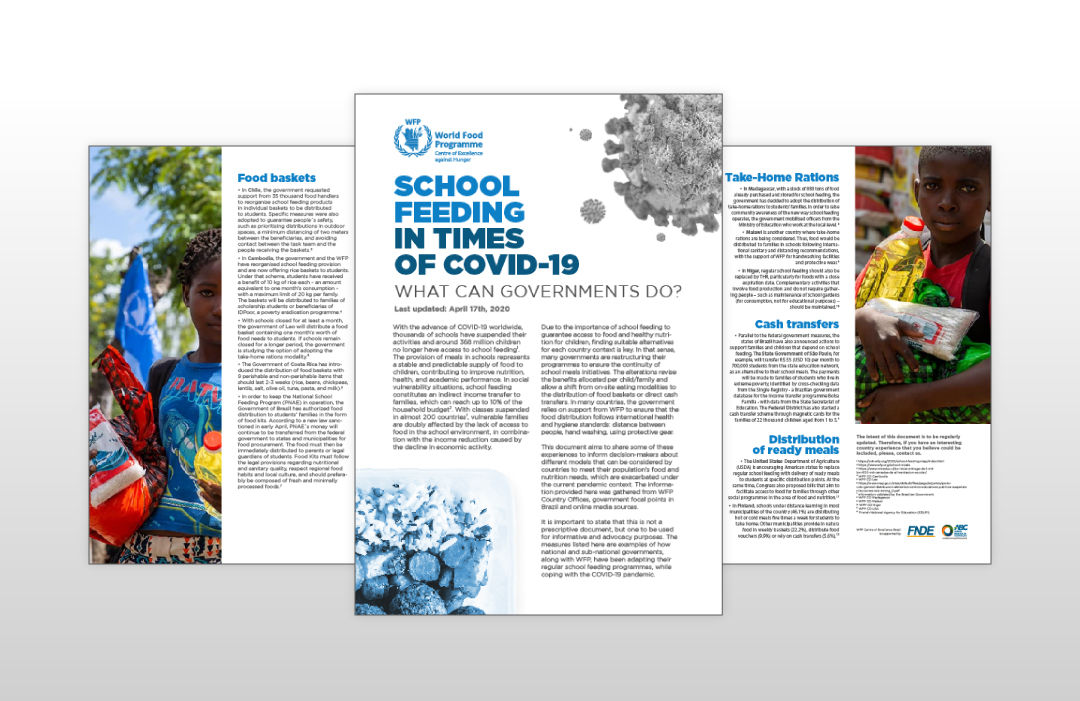Register for the Education and Nutrition Webinar: Reaching Children during the COVID-19 Pandemic
How do you make your alternative feeding modality sustainable…
COVID-19 and undernutrition: millions of children are at risk
The socio-economic impacts of the pandemic could increase food and…
Food and nutrition security: the Brazilian experience
Learn about initiatives that can help other countries in fighting…
Project Preparation for Resource Mobilization: from grant call to final approval
Learn about how the WFP Centre of Excellence collaborated with…
Employee of the Month: Bruno Magalhães
In high school, Bruno had the opportunity to witness…
Publication
Implementing the Brazilian National School Feeding Programme During the COVID-19 Pandemic
With the suspension of the school calendar due to the COVID-19 pandemic, the Brazilian National School Feeding Programme (PNAE), has decided to distribute the food purchased for the programme to children’s parents and guardians in the form of food baskets – which the government is calling “kits”. The WFP Centre of Excellence against Hunger Brazil has created a document that summarises the main recommendations for school feeding nutritionists and managers to organise the assemblage and distribution of these kits, as detailed by FNDE´s “Guidelines for the Execution of PNAE during the Emergency Situation arising from the COVID-19 Pandemic”.
Implementing the Brazilian National School Feeding Programme During the COVID-19 Pandemic
Read the key recommendations for school feeding nutritionists and managers…
Publication
School feeding in times of COVID-19
With the advance of COVID-19 worldwide, thousands of schools have suspended their activities and around 368 million children no longer have access to school meals. The provision of meals in schools represents a stable and predictable supply of food to children, contributing to improve nutrition, health, and academic performance. In order to ensure the continuity of school meals initiatives, many governments are restructuring their programmes. The changes include the revision of benefits allocated per child/family and allow a shift from on-site eating modalities to the distribution of food baskets or direct cash transfers.
Publication
School Feeding and Social Protection in Brazil with the COVID-19 Pandemic
Public and private schools suspended classes throughout Brazil as part of the Covid-19 prevention actions. This means that the nearly 40 million children and adolescents enrolled in basic education – and who also benefit from daily school meals – are no longer receiving this service. The publication presents the actions being taken in Brazilian states and municipalities to maintain school meals distribution during the crisis.
School feeding in times of COVID-19: What can Governments Do?
New publication produced by the WFP Centre of Excellence against…





